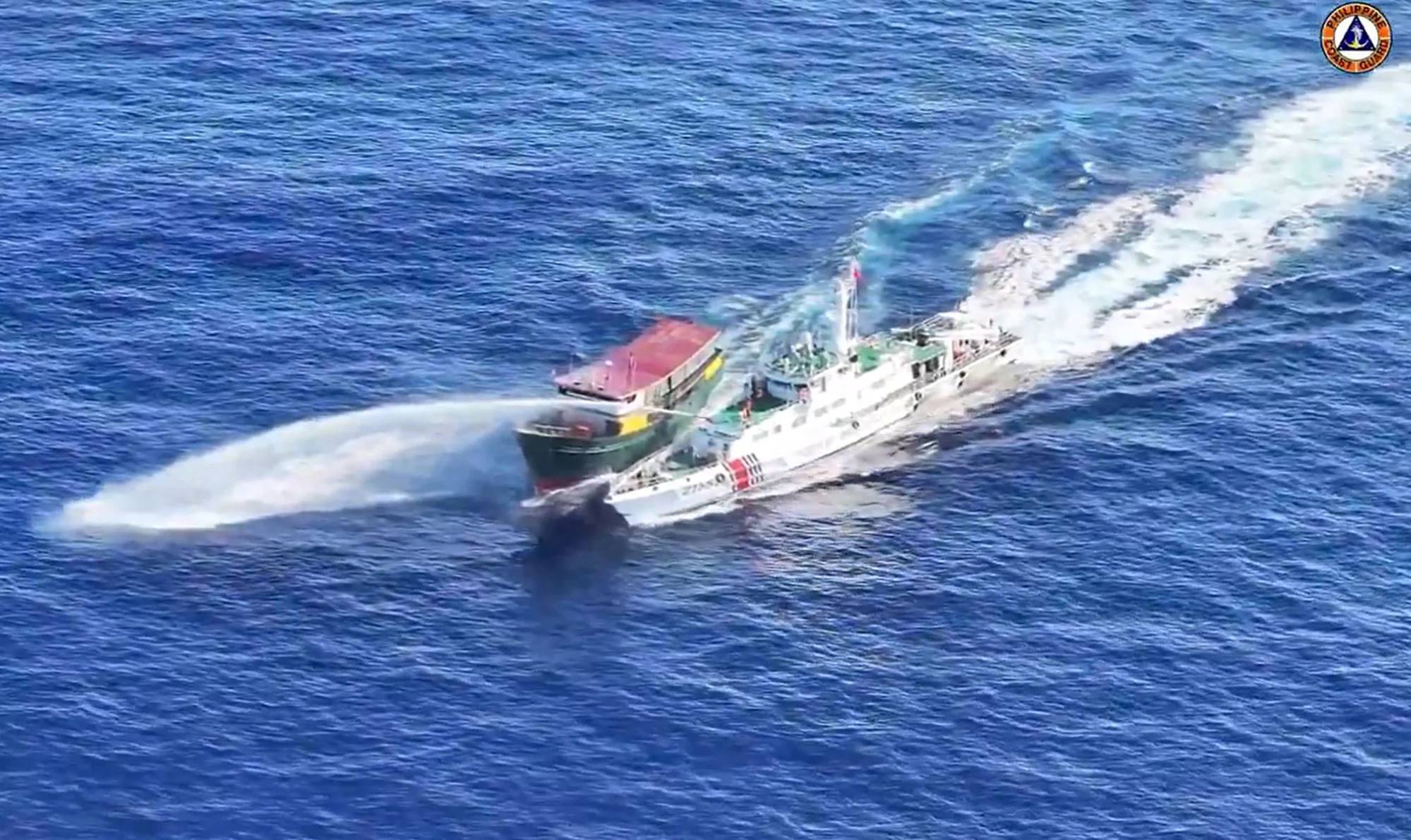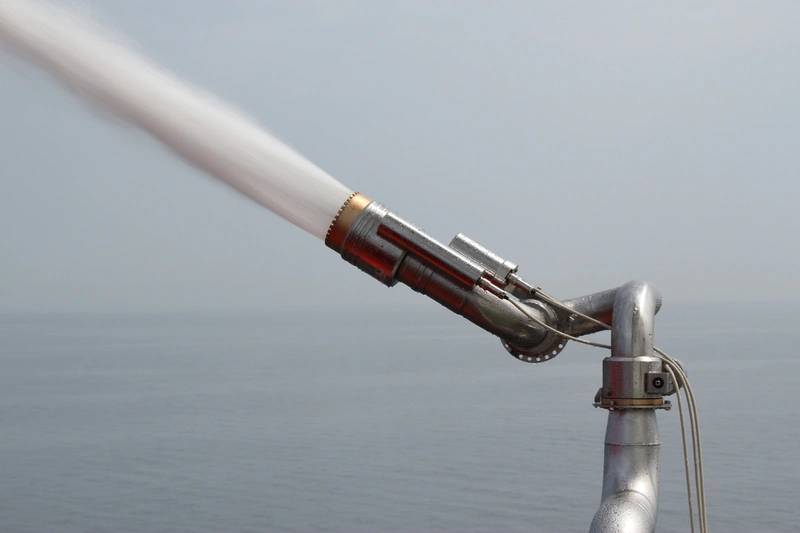International
China’s New Weapon: AI-Powered Water Cannon Changes the Game in South China Sea

The world’s first ‘smart’ water cannon, controlled by artificial intelligence (AI), has been developed by researchers in central China and could take the nonlethal weapon to new levels, becoming decisive in clashes with the Philippines in the South China Sea.
Beijing increasingly sees these weapons as essential to strengthening its control over disputed waters while reducing the likelihood of armed clashes.
The use of water cannons in South China Sea disputes is set to increase in frequency and intensity, potentially changing the rules of the game in this sensitive region, according to some Chinese Coast Guard researchers.
A water cannon is an apparatus that shoots a powerful jet quickly and at high pressure. A powerful water cannon can attack targets more than 100 meters away, generating a pressure of more than 1.2 megapascals. An adult male facing it head-on could suffer an impact force of nearly nine tons, equivalent to that of an African elephant. So they are only theoretically nonlethal weapons, because being hit by this jet can result in being knocked overboard or into blunt objects.
Water cannons have frequently struck Philippine ships in recent months during battles with Chinese coast guard vessels. In one notable incident last month, the windshield of a cockpit shattered, injuring several personnel.
In another clash at Second Thomas Shoal, known as Renai Reef in China and Ayungin Shoal in the Philippines, crew members of a Philippine supply ship waved a white flag due to incessant gun fire.
However, according to videos released by both sides, the accuracy of these weapons leaves much to be desired, often missing the target in the rough seas.
It is a problem that the smart water cannon aims to solve. The Wuhan Marine Propulsion Electric Devices Research Institute developed it, and it uses real-time feedback from a photoelectric camera to automatically identify targets and modify the jet’s power and trajectory.
The water cannon is also equipped with motion sensors that collect the ship’s swing state to modify ballistic parameters. In this way, the predictive models allow an exact point of the intended ship to be hit, despite the mutual movement of the two vessels.
The AI has proven to be able to learn, with great practical ability, what happens in the case of sea swell motions, with the ability to miss targets by only two meters even in very rough sea conditions or high winds, improving from 33% to 54% the result of traditional cannons.
It should be mentioned that merchant ships, which are prohibited from carrying weapons on board but still need to defend themselves against pirate attacks in many hazardous regions of the world, frequently utilize water cannons as a defensive weapon. This is not limited to China’s use of them in its conflict with the Philippines.

Anti-pirate water cannon
The use of these weapons could lead to miscalculations
China has mounted water cannons on many of its coast guard ships, used to assert its rights in maritime space, where, however, none of the parties involved seem interested in giving in.
The fact that these weapons are, in theory, nonlethal can lead to abuse in their use; the power of a water cannon, however, can injure or throw sailors overboard, and conunque comes across as a very heavy-handed hostile act.
At this stage, China is abusing these means to assert its claims on the South China Sea. What if tomorrow it faces a ship with a more powerful water cannon? Or if a commander with specific orders went to the next level?
Relying on the fact that the Philippines, for example, has a less powerful fleet than China’s may also be misleading: Manila has agreements with the U.S. and, in the event of violent events, could lean on the star or striped fleet or even the Japanese fleet, taking the conflict to a higher level.






